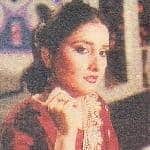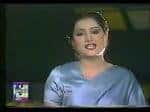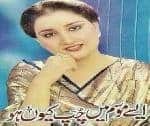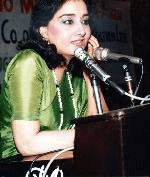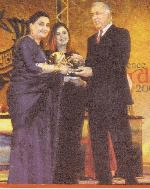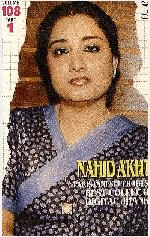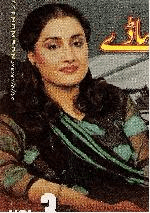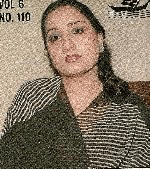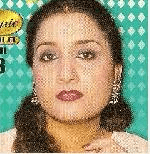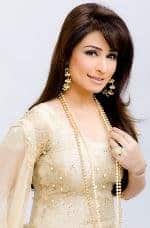Naheed Akhtar – Pakistani Film Singers

Nahid Akhtar remained an unavoidable part of the addresses of almost all Pakistani films between the mid-70 to the 80 late. In so many ways, and the female counterpart of Ahmed Rushdie, even though the next generation at a later time.
Nahid suddenly found her place as one of the singers most diverse in the mid -70 when it became clear that she had gotten to the sound of expressive unusually may be suitable for many diverse situations for that – the creation of pessimistic sadness with the TV with Ghazal says Tom wrote Kay taqazay or Flint religion Kay Aye (Naag Aur Nagin), and enhance morale with songs full of vitality, such as Dell rip Kai death jayyio (Waqt f) or Piyar Kabhi Karna NA com (Aashie), and to establish contact with the spiritual with God Ebadi founded hello Allah Kiya Karo ( Pehchan) and even get herself as a female voice more scoop and lewdest of time if need be: Yeh Aaj mujko Kia Hua (Naukar), Dell sanbhala NA jaye (Mera Nam Hai Mohabbat), etc. There actually was no way to escape her those good old days of the late 70’s.
And became the voice of Nahed Sherif told Babra what Ahmed Rushdie’s voice had a single Murad. In fact, they retained a kind of symbiotic that appear on the screen throughout the next decade.
With the decline in the film industry in the early 80’s onwards Nahid more time to television and I did not forget programs such as the sea wall, which gave them an opportunity to display her talent in a more classic style (which was a list of special program on the music Amir Khusrau).
She hit it big in 1974 and successfully recorded this song:
‘Dil dee wana dil’ (The film ‘Nanha Farishta’, film director, Khursheed).
In the same year, 1974, Nahid became the cynosure of all eyes and lenses.
The following song was recorded in her strongly appealing voice:
‘Kisi meherbaan nay Aa kay meri zindigi saja dee, meray dil ki dharkano mein nai Aarzu jaga dee.’ (The film ‘Shama’, 1974, directed by Nazar Shabab)
The song ‘Meherbaan’ was a huge plus in her singing career.
Her stylistic mastery and trade marked television appearances continued through the 1970s.
Increasingly, though, her attention was turned to the cinema. Films became the topmost priority to Nahid, while television went down to the next level.
Interestingly enough, every aspect of her life had changed.
Her face, her dressing, her etiquettes had dramatically altered.
From the little known Nahid Akhtar, (with no make up) she elevated herself to the glittering world of movies.
Most importantly, she reveled in a glorious new lifestyle.
Further, her admirers were certain that Nahid’s next logical step would be to work in the movies, in the lead roles.
In fact, she received quite a few offers from the film producers. However, she regretted all such offers and invested all her efforts towards singing.
Nahid believed that if she could envision it, she can be it. The secret of her highly successful life is that she never stopped envisioning.
Her voice in the film ‘Teray, meray sapnay’, is a breathtaking story of achievement:
Mein ho gaye dildar ki ‘(The first film of actress Sangeeta as a producer)
The film ‘Dekha jaaye gaa’, is a shining instance of one artist making a big difference. In Nahid’s case, through the power of her voice:
‘Pyar kabhi karna na kum, mar jaa ye gee teri Aashi’. (Film director: Jan Mohammad Jaman, pictured on Barbara Sharif).
Nahid, widely acclaimed for her song in the film ‘Mohabbat zindigi hay’ (Director: Iqbal Akhtar), won the hearts of the Pakistani public: ‘Tu tu tu Tara Tara’.
Naheed Akhtar Pictures
|
|
|
| ||||||||
|
|
|
| ||||||||
|
|
|
| ||||||||
|

